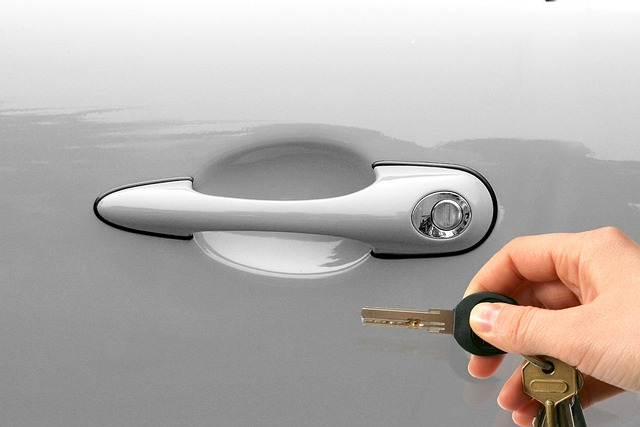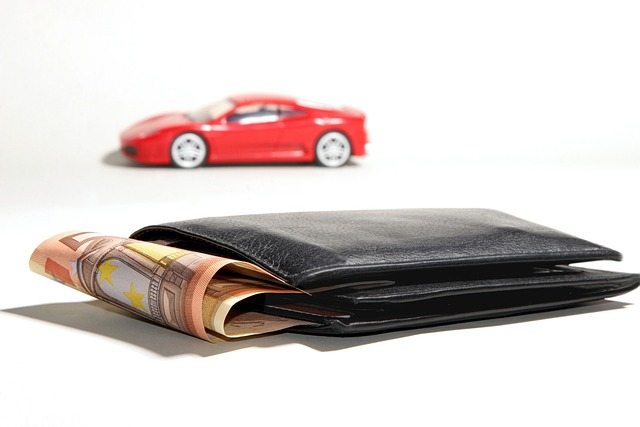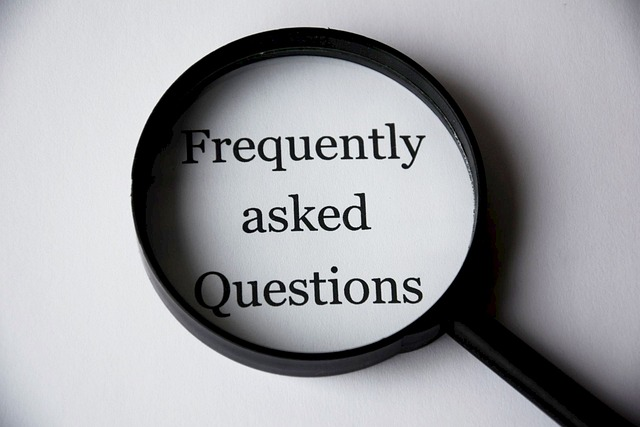Car leasing is a popular option for businesses to acquire new vehicles. It involves making regular payments to use a vehicle for an agreed period, typically 2-4 years. This can be advantageous for businesses as it allows them access...
What is a Car Lease?
Car leasing is a popular option for businesses to acquire new vehicles. It involves making regular payments to use a vehicle for an agreed period, typically 2-4 years. This can be advantageous for businesses as it allows them access to newer and more reliable vehicles without the significant upfront costs associated with purchasing.
Leasing a car through your business can be an attractive option due to lower monthly payments than taking out a car loan and having access to newer models more frequently. However, it’s essential for businesses to carefully consider their mileage needs and ensure they understand all aspects of the lease agreement before committing.
Types of Leases
Several types of commercial car leases are available, including open-end leases, closed-end leases, and single-payment leases.
Open-End Lease: Allows the lessee to purchase the vehicle at the end of the lease term for a predetermined price, including the difference between the residual value at the time of the lease and the actual resale value.
Closed-End Lease: A closed-end commercial car lease requires the vehicle to be returned at the end of the lease with no further financial obligations unless there is excessive wear and tear or mileage overage.
Single-Payment Lease: This involves paying the entire lease amount upfront. When it comes to the end of a commercial car lease, options may include returning the vehicle and walking away, purchasing the vehicle at the predetermined price, or extending the lease for a set period.
It’s crucial for businesses to carefully consider their needs and financial situation when choosing a commercial car lease and deciding on the best option for the end of the lease.
Is it possible to Lease a Car in a Business’s Name?

Businesses can lease cars in their name for various operational needs, such as company vehicles and business mileage. In other words, the leased car must be for business use for it to be leased using the business name. This allows companies to access the benefits of tax deductions and cost savings through car leasing deals.
Leasing a car through your business can lead to significant advantages. It enables enterprises to manage their expenses effectively by avoiding significant upfront costs associated with purchasing vehicles outright. Moreover, leasing companies offer flexible agreements tailored to suit the unique needs of businesses, providing options that align with specific budgetary requirements.
Commercial customers can leverage car leasing for diverse business purposes, including acquiring company cars and managing business-related travel. By incorporating leased vehicles into their operations, businesses can allocate resources more efficiently while maintaining financial flexibility.
Car leasing deals are designed to accommodate the dynamic nature of business operations. Companies can explore various models and make informed decisions based on their specific requirements, ensuring they secure cost-efficient solutions that align with their long-term objectives.
What types of Vehicles can my Business Lease?
Businesses have the flexibility to lease various types of vehicles, including cars, vans, trucks, and even specialized equipment such as construction vehicles or refrigerated trucks for transporting perishable goods.
Examples of vehicles you can lease include:
Cars: Businesses can lease various cars, including compact cars and sedans, for transportation needs. Usage of a company car can include employee commuting, client meetings, product deliveries, and more.
Vans: Businesses can lease a variety of vans, including cargo vans, passenger vans, and refrigerated vans, to support their transportation and delivery needs.
Trucks: Businesses can lease a variety of trucks, such as box trucks, flatbed trucks, and refrigerated trucks, for transporting goods, equipment, and materials for their business operations.
SUVs: Businesses can lease a variety of SUVs, ranging from compact crossovers for city use to full-size SUVs for transporting goods and equipment. These vehicles are commonly used for sales visits, client meetings, and transporting employees to different locations.
Commercial vehicles: Businesses can lease various commercial vehicles, such as delivery vans, trucks, and trailers, to support their transportation and logistics needs. These vehicles are essential for businesses to operate efficiently and effectively.
Leasing companies recognize the diverse needs of business owners and offer a spectrum of options tailored to different industries. From startups with limited business credit to established corporations looking to expand their fleet, leasing solutions are available for all types of businesses.
What documentation is required to Lease a Car for Business?
Leasing companies typically review a business’s financial documents to verify the legitimacy of the business and its financial stability. Be prepared with the following documentation:
Business license. Financial statements, such as your income statement, cash flow statement, and balance sheet. Business bank statements. Tax returns. Credit reports.Businesses seeking to lease a car must provide evidence of their intended business mileage and usage. This helps leasing companies understand the primary purpose of the vehicle lease and ensure that it aligns with business operations.
How much does it Cost to Lease a Car for Business?

The lease price typically includes the down payment, monthly payments, and end-of-lease fees. Lease costs for business vehicles are influenced by factors such as the car’s value, lease term, and the creditworthiness of your business. Compared to purchasing a vehicle outright, business car leasing deals often offer lower monthly payments and tax benefits.
The overall cost of leasing a car for your business is significantly impacted by the mileage and usage it will endure in your business operations. Understanding the business mileage and usage requirements is crucial in determining whether leasing is cost-effective for your specific needs.
Commercial customers can negotiate lease payments and terms with leasing companies to align with their unique business expenses. By leveraging negotiation skills, businesses can tailor lease agreements that suit their financial capabilities while meeting their operational needs effectively.
How does Leasing a Car for Business work?
Here’s a step-by-step guide on how to lease a car for your business.
Step 1 – Research and Choose the Right Car: The first step in leasing a car for your business is to research and choose the right vehicle for your needs. Consider factors such as the size of the car, fuel efficiency, and any specific features required for your business operations.
Step 2 – Find a Reputable Leasing Company: Once you have decided on the type of car you need, it’s time to find a reputable leasing company. Look for companies specializing in business car leasing with a good reputation for customer service and competitive rates.
Step 3 – Negotiate the Lease Terms: Before signing a lease agreement, it’s important to negotiate the lease terms. This includes the lease duration, mileage limits, and additional fees or charges. Carefully review the terms and conditions to ensure they align with your business’s needs.
Step 4: Complete the Application Process: Once you have negotiated the lease terms, you must complete the application process with the leasing company. This typically involves providing information about your business, such as financial statements and credit history, to determine your eligibility for the lease.
Step 5 – Sign the Lease Agreement: After your application is approved, you must sign the lease agreement. Review the document carefully and ask any questions about the terms before signing. Once signed, you are responsible for making monthly lease payments and adhering to the terms of the agreement.
Step 6 – Take Delivery of the Car: Once the lease agreement is signed, you can take delivery of the car and start using it for your business operations. Ensure to keep up with regular maintenance and adhere to any maintenance requirements outlined in the lease agreement to keep the car in good condition throughout the lease period.
What are the benefits and drawbacks of Leasing a Car for Business?
When leasing a car for business purposes, you can often deduct the lease payments as a business expense, reducing your taxable income. Leasing typically requires minimal upfront costs compared to purchasing, allowing businesses to conserve capital for other operational needs.
Business car leasing deals provide access to the latest vehicle models equipped with modern safety features and technology. With fixed monthly lease payments, businesses can accurately budget their transportation expenses without unexpected repair costs.
Most leases have mileage limits, and exceeding these limits may result in additional fees at the end of the lease term. Unlike owning a vehicle outright, leasing involves continuous monthly payments without building equity in an asset.
Businesses don’t own the leased vehicle, missing out on potential resale value or ownership benefits after completing loan payments. There might be charges for excess wear and tear or modifications not covered by the lease agreement.
Business Car Leasing Pros & Cons

Pros:
Tax deductions. Lower upfront costs. Access to newer vehicles. Predictable budgeting.Cons:
Mileage restrictions. Ongoing lease payments. Lack of ownership. Potential for additional fees.What are the tax implications of Leasing a Car for Business?
Tax deductions may be available for business car lease payments. Businesses can deduct a portion of the lease payment as an expense, reducing the overall taxable income.
Business mileage can be used to calculate tax-deductible expenses for leased vehicles. By keeping track of the miles driven for business purposes, businesses can claim a deduction based on the standard mileage rate set by the IRS.
Lease costs for business purposes can be considered tax-deductible business expenses. This includes monthly lease payments and other related expenses, providing potential tax benefits for businesses utilizing leased vehicles.
Note: The above is for informational purposes and does not constitute tax advice. Consult with your tax professional to ensure you can deduct lease costs.
Frequently Asked Questions

Here are the most common questions about how to lease a car through your business.
Is it better to Lease or Buy a Car for Business?
Leasing a car through your business typically involves lower monthly payments than purchasing a car with an equipment loan. With leasing, you only pay for the vehicle’s depreciation during the lease term, resulting in more affordable payments than loan repayments for the entire cost of the car.
Another advantage of leasing is that it provides flexibility, allowing businesses to easily upgrade to a new car at the end of each lease term without worrying about selling or trading in an owned vehicle. Leasing often includes maintenance packages, providing convenience and predictability in budgeting for vehicle expenses.
However, you don’t own the car. When leasing a vehicle through your business, it’s crucial to consider the limitations on business mileage and usage outlined in the lease agreement. Exceeding these limitations may result in additional fees.
It’s better to lease if you:
Want to have a lower monthly payment. Prefer to drive a new car every few years. Want to avoid the hassle of selling the car when you no longer need it. Want to take advantage of potential tax benefits.It’s better to purchase if you:
Plan to keep the car for a long time. Want to build equity in the vehicle. Have the funds available for a large down payment. Prefer to have no mileage restrictions. Want the flexibility to modify or customize the vehicle.What types of Businesses can Lease a Car?
The business structure does not restrict business car leasing options. The following business entities can lease a car:
Sole proprietorships Partnerships Limited liability companies (LLCs) Corporations Non-profit organizationsCan I Lease a Car with EIN only?
In most cases, you’ll need to provide personal information when leasing a car for your business. The EIN is typically used in addition to personal details. Most leasing companies review both your personal and business credit when reviewing lease applications.
However, some leasing companies may allow you to lease a car using only your business’s EIN. This means that your personal social security number may not be required for the lease application.
It’s essential to note that using your business EIN for a car lease might involve providing a personal guarantee. If the business fails to make payments, you will be personally responsible for fulfilling the lease obligations.
Can my business terminate the Lease Early?
Yes, it is possible for a business to terminate a lease early, but it typically comes with consequences. Most lease agreements include an early termination clause that outlines the process and any associated fees for ending the lease before the agreed-upon term is completed.
Businesses need to review their lease agreement and understand the terms and conditions regarding early termination. In some cases, companies may be able to negotiate with the lessor to reach a mutually beneficial solution for ending before the entire lease period is up. However, it’s important to carefully consider the financial and legal implications before deciding to terminate a lease early.
What are my alternatives to Leasing a Car?
Here are some alternatives to leasing a car in your business’s name.
Car Subscription Services
Car subscription services provide flexibility in vehicle usage, allowing businesses to access different vehicles based on their current needs. This alternative offers the advantage of using various models without committing to long-term lease agreements.
Financing a New Vehicle Through a Car Loan
Opting for a car loan to finance a new vehicle is an alternative to leasing. It enables businesses to own the vehicle outright after completing the loan payments. This method eliminates the constraints associated with lease agreements and allows for customization and ownership benefits. You can potentially qualify for a Section 179 tax deduction when you purchase a business vehicle using equipment financing.
Purchasing a Vehicle Outright
Purchasing a car outright removes the need for lease payments altogether. While this option requires a significant upfront investment, it provides full ownership and control over the vehicle without being tied down by leasing terms.
How to Lease a Car Through Your Business – Final Thoughts

It’s essential to understand how leasing a car through your business works. You’re equipped to make informed decisions, from the types of vehicles you can lease to the tax implications and the alternatives available.
Remember, weighing the benefits and drawbacks carefully before diving in is crucial. Whether you’re a small startup or a well-established company, the right choice can significantly impact your bottom line.
Contact us if you have more questions about business car leasing or to apply for a small business loan. Our business funding experts can help you find the best financing options for vehicles or other business needs.
The post How to Lease a Car Through Your Business: The Essential Guide appeared first on United Capital Source.


